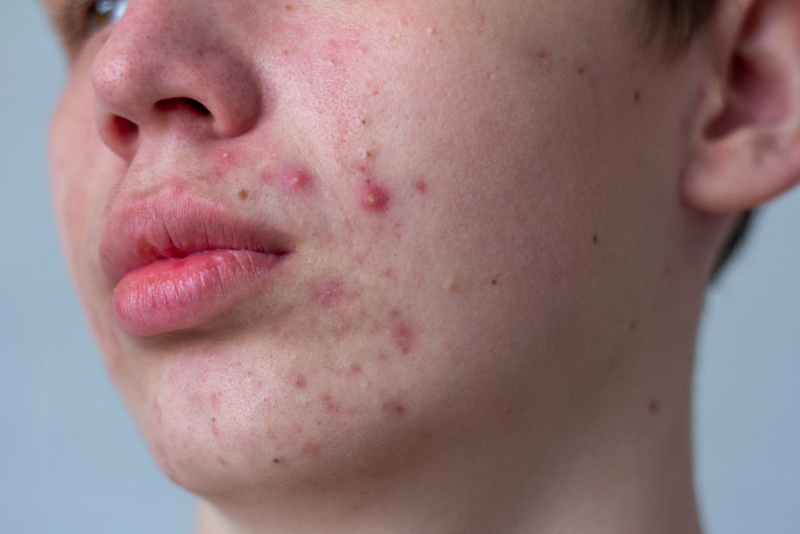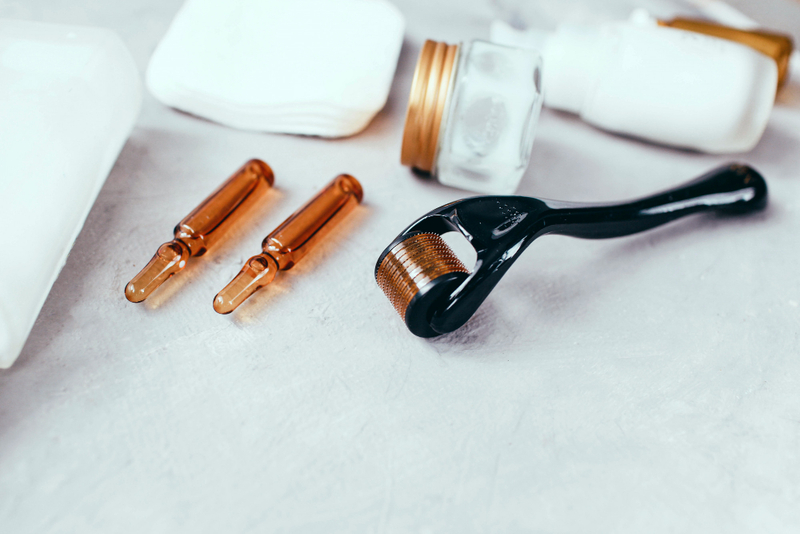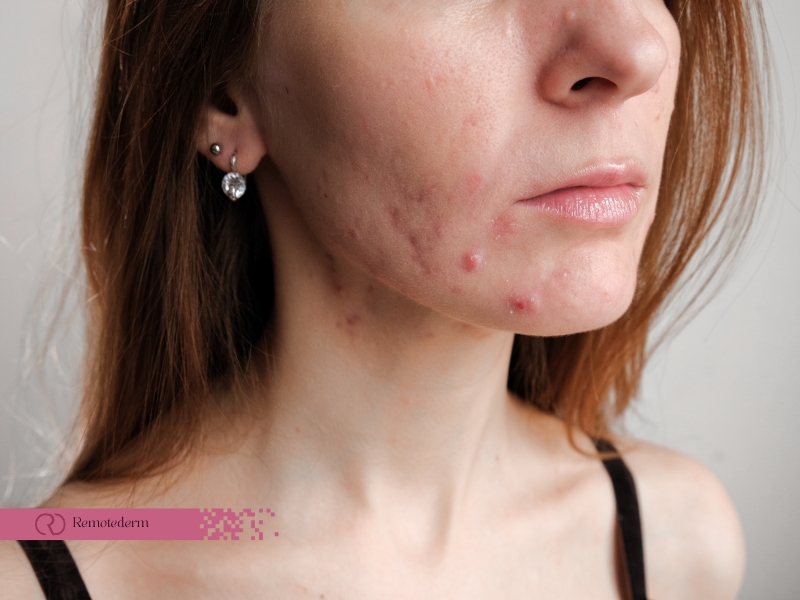Dealing with severe acne can be challenging for many Canadians, impacting not only physical appearance but also self-esteem and mental health. Understanding the causes, exploring treatment options, and adopting preventative strategies are essential steps to effectively manage severe acne and achieve clear, healthy skin.
What is Severe Acne?
Severe acne, also known as cystic acne or nodulocystic acne, is the most serious form of acne vulgaris. It stands out due to intense inflammation. Individuals with severe acne experience a combination of painful nodules, cysts, papules, pustules, and comedones. These blemishes often penetrate deeper layers of the skin and can be uncomfortable. Severe acne can occur at any age and affects both men and women. It commonly appears on the face, back, neck, chest, and shoulders. If you have widespread breakouts, redness, inflammation, and scarring, it’s essential to seek dermatological treatment. Treating severe acne aggressively is crucial to prevent scarring and improve skin health.
Causes of Severe Acnes
Severe acne, characterized by deep cysts, inflammation, and extensive breakouts, often develops due to a combination of factors:
- Hormonal Changes: Fluctuations in hormone levels, particularly during puberty, menstruation, and pregnancy, can trigger or exacerbate severe acne.
- Genetics: A family history of acne can increase the likelihood of developing severe forms of the condition.
- Diet: While not fully proven, some research suggests that certain foods high in sugar and refined carbohydrates may contribute to acne flare-ups.
- Stress: Chronic stress can worsen acne by increasing inflammation and oil production in the skin.
- Environmental Factors: Exposure to pollutants and certain skincare products may aggravate acne.

Treatment Options for Severe Acnes
Several treatment options are available in Canada to effectively manage severe acne and prevent scarring:
- Topical Medications: Prescription-strength retinoids, benzoyl peroxide, and antibiotics can help reduce inflammation and unclog pores.
- Oral Medications: Oral antibiotics, hormonal therapies, and isotretinoin (Accutane) may be prescribed for severe cases of acne that do not respond to topical treatments.
- Procedures: Dermatological procedures such as chemical peels, microdermabrasion, and laser therapy can improve skin texture and reduce acne scars.
- Lifestyle Modifications: Adopting a skincare routine with non-comedogenic products, practicing stress management techniques, and maintaining a balanced diet can complement medical treatments for acne.
- Online Dermatology Services: Seek professional advice and prescriptions through online platforms specializing in dermatology. These services can provide convenient access to acne online prescription and personalized treatment recommendations.
Prevention Strategies for Severe Acne
While it may not be possible to completely prevent severe acne, adopting certain preventive measures can help minimize breakouts and reduce their severity:
- Cleanse Gently: Avoid harsh scrubbing or overwashing the face, as this can irritate the skin and exacerbate acne.
- Use Non-Comedogenic Products: Choose skincare and makeup products that are non-comedogenic, which means they will not clog pores.
- Manage Stress: Practice stress-reduction techniques such as meditation, yoga, or deep breathing exercises to help prevent stress-related acne flare-ups.
- Limit Dairy and High-Glycemic Foods: Some studies suggest that reducing dairy and high-glycemic foods in the diet may help improve acne symptoms.
- Protect Your Skin: Use sunscreen daily to protect your skin from harmful UV rays and prevent post-inflammatory hyperpigmentation.
Addressing Severe Acne Scars
Severe acne can leave behind stubborn scars that persist long after the active breakouts have resolved. Treatment options for acne scars include:
- Laser Therapy: Fractional laser resurfacing can increase collagen formation and improve the look of acne scars.
- Microneedling: This minimally invasive process creates microscopic punctures in the skin to encourage collagen and elastin production, resulting in smoother skin texture.
- Dermal Fillers: Injectable fillers can temporarily improve the appearance of depressed acne scars.
- Chemical peels: This procedure can help exfoliate the skin and gradually improve the look of acne scars.

Does Severe Acne Go Away on Its Own?
Severe acne typically requires medical intervention to resolve completely. While some individuals may see improvement with age, many cases of severe acne persist without treatment. Consulting a dermatologist for personalized treatment recommendations is essential for effectively managing severe acne and preventing long-term scarring.
How Long Do Severe Acnes Last?
The duration of severe acne varies depending on individual factors such as genetics, lifestyle, and treatment adherence. Without intervention, severe acne can persist for years, leading to physical and emotional distress. Seeking timely medical treatment can help shorten the duration of severe acne and minimize its impact on overall well-being.
Final Thoughts
Managing severe acne in Canada can be tough, but with the right treatments and preventive strategies, clear and healthy skin is achievable. By identifying the root causes, consulting a healthcare professional for tailored solutions, and making lifestyle adjustments, Canadians can take charge of their skin health and boost their confidence. Consistency and patience are essential on the path to clearer skin.
FAQs
1. Can hormonal fluctuations during pregnancy worsen severe acne?
Yes, hormonal changes during pregnancy can exacerbate acne symptoms for some individuals. Consulting a healthcare provider for safe and effective acne treatments during pregnancy is recommended.
2. Are there any natural remedies that can help alleviate severe acne?
While some natural remedies may provide mild relief for acne symptoms, they are not typically effective for severe cases. It’s essential to consult a dermatologist for personalized treatment recommendations tailored to the severity of the acne.
3. Does exposure to sunlight improve severe acne?
While sunlight can temporarily dry out excess oil and mask redness associated with acne, excessive sun exposure can worsen acne in the long run and increase the risk of sun damage and hyperpigmentation. It’s crucial to use sunscreen daily and seek other acne treatment options.
4. Can severe acne be a sign of an underlying health condition?
In some cases, severe acne may be associated with underlying health conditions such as polycystic ovary syndrome (PCOS) or hormonal imbalances. Consulting a healthcare professional can help identify any potential underlying causes and develop an appropriate treatment plan.
